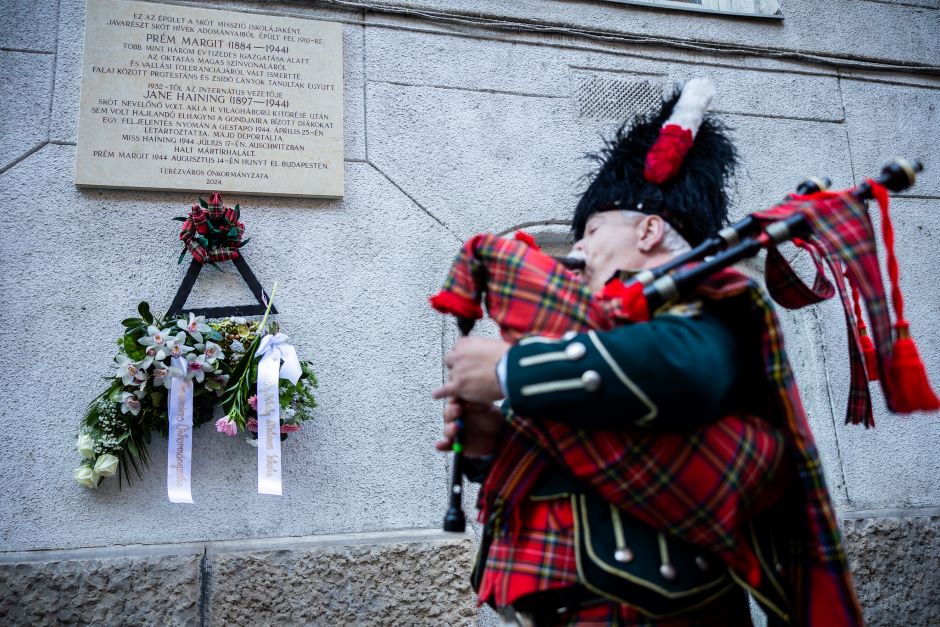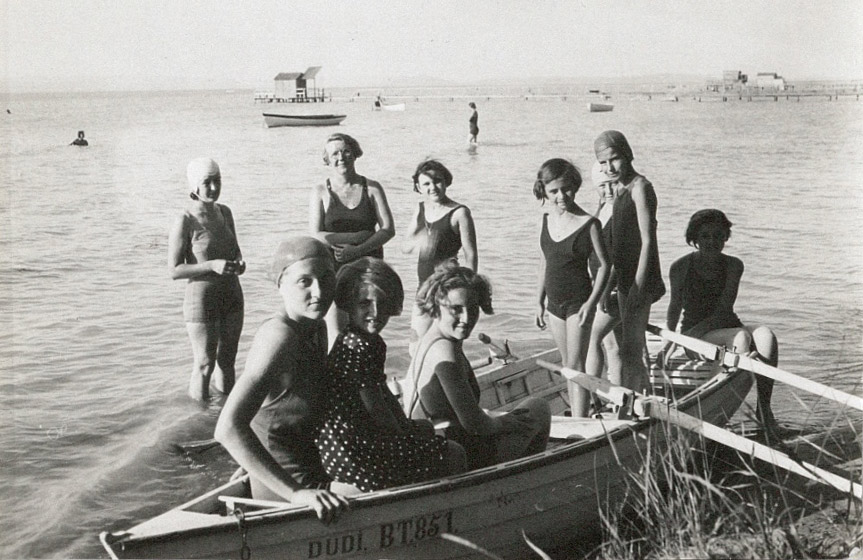New project remembers 'living legacy' of Scot who died in Auschwitz
Published on 27 January 2022
A new group has been established to promote the "living legacy" of a Scot who gave her life to protect Jewish school girls during the Holocaust.
The Jane Haining Project was formed by a cohort of Christian and Jewish people who believe that her story is very relevant today in light of growing levels of antisemitism, racism, and intolerance.

It is developing plans with public agencies to launch a national essay writing competition in Scottish secondary schools and a digital heritage trail app of notable places connected to the Kirk missionary, who died in Auschwitz, and the Jewish community.
Speaking on Holocaust Memorial Day, Rev Ian Alexander, a member of the project committee, said: "Jane Haining showed tremendous courage in the face of intolerable evil and her heart-breaking and inspirational story is as important today as ever.
"We hope that the exciting two core activities that are currently being developed will help keep her memory alive for generations to come."
Miss Haining was the matron at the Scottish Mission School in Budapest, Hungary and refused to abandon "her girls" after the Second World War broke out in 1939 even though she knew her life was in danger.
She was determined to stay in her post and continue doing her duty and famously said 'If these children need me in days of sunshine, how much more do they need me in days of darkness?'

The farmer's daughter from the village of Dunscore in Dumfries and Galloway started working at the school, which had around 400 day and boarder pupils aged from 6-16 years old in 1932.
Most of the pupils were Jewish and Miss Haining who was on holiday in the UK when war was declared immediately returned to Budapest to be with "her" girls.
She managed to help keep the children, many of whom had been abandoned by their families, safe for four long years of hardship until she was betrayed by the Mission cook's son-in-law, a future SS soldier called Schreder, whom she caught stealing scarce food meant for the girls.
'Don't worry, I will be back by lunch'
Miss Haining was arrested by "German officers" in April 1944 and former pupil Agnes Rostas, who witnessed the incident, revealed that her haunting last words to sobbing children were "Don't worry, I'll be back by lunch".
She was charged with eight offences - working amongst the Jews; weeping when seeing the girls attend class wearing yellow stars; dismissing her housekeeper; listening to news broadcasts on the BBC; having many British visitors; being active in politics; visiting British prisoners of war and sending British prisoners of war parcels.
Miss Haining vehemently denied talking about or meddling in politics and after spending time imprisoned in Budapest was transported by rail in a cattle wagon along with around 90 other people to Auschwitz-Birkenau in Nazi-occupied Poland on the 14th of May, 1944
The 47-year-old, who suffered from poor health, was given the number 79467 and likely forced into slave labour with women said to have worked in mines for 14 hours a day with a food allowance of two clear bowls of soup. Up to 300 women are said to have slept in a single barrack.
Miss Haining died on the 17th of July 1944 with the Germans stating that she was admitted to hospital and succumbed to cachexia following intestinal catarrh but there are doubts to the validity of this "official" claim.
The Jane Haining project emerged from the West of Scotland branch of the Council of Christians and Jews (CCJ) after author Mary Miller gave a talk about her book, Jane Haining: A Life of Love and Courage.
The committee is made up of 10 members including Mrs Miller and is chaired by Professor Anne Anderson, former vice-principal of the University of Glasgow.

James Roberts, Christian Programme Manager with CCJ, is supporting the group and said the primary objective is to bring people together.
"Jane Haining's story is one that young people can identify with and it evokes a strong emotional response," he added.
"By refusing to be a bystander, she demonstrated her loving kindness, her sense of fairness, justice and solidarity and her contempt of discrimination in her refusal to treat her Jewish pupils as 'the other'.
"In this light, the project aims to increase understanding, acceptance and kindness between individuals from different cultures and religious backgrounds and equip people to speak out against prejudice and take action to challenge antisemitism and discrimination.
"The Jane Haining Schools Competition will be centred around her inspirational life and accompanied by a suite of appropriate educational resources about the Holocaust and seeks to connect her story to contemporary issues.
"We are in the early stages of development and hope to work with a group of teachers in pilot schools to create the material which will also draw on expertise from Holocaust educators and people who know Miss Haining's story."
Meaningful
Mr Roberts said the Jane Haining Project would like to publish the winning essays, create online video blogs and encourage schools across Scotland to share them as well as discuss the missionary's story and legacy at assemblies.
"We hope we can work towards having the resources embedded in the national curriculum because Holocaust education is not compulsory in Scotland whereas it is in England," he added.
In addition to Dunscore, Jane Haining has links to Dumfries, Glasgow and Paisley and Mr Roberts said a heritage trail would allow people to connect with her story in a meaningful and tangible way in addition to learning about Scotland's Jewish heritage.

Miss Haining's selfless bravery led to her being posthumously awarded a Heroine of the Holocaust medal by the UK Government.
She is the only Scot to be named Righteous Among the Nations at Yad Vashem in Jerusalem, Israel's memorial to victims of the Holocaust.
Her life is celebrated at Dunscore Church and Queen's Park Govanhill Church in Glasgow - the church she attended while living in the city prior to her move to Budapest.
Last year, a new residential street in Loanhead, Midlothian was named "Haining Park" in her memory.
Holocaust Memorial Day is marked on the 27th of January each year.
Soviet troops liberated Auschwitz-Birkenau, where more than 1.1 million people were murdered, 90% of them Jewish, on this day in 1945.


